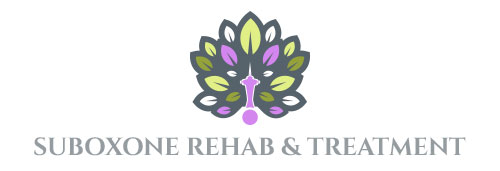Location
Our Washington Location
Our inpatient facility is located in Washington, and will serve Washington state. It will provide a safe & therapeutic environment for both our staff and patients.
- Edmonds
7416 212th St SW,
Edmonds, WA 98026
Trying to break out of the grip of opioid addiction can be physically and mentally exhausting. Severe withdrawal symptoms like headaches, depression, and possibly even seizures can cause someone addicted to continue to relapse to ease the pain. Medication-assisted treatment (MAT) cycles in substance abuse treatment programs often rely on opioid replacement methods, including using Suboxone for withdrawal treatment.
These programs can vastly improve the successful recovery rates for people struggling with opioid addiction. However, medications like Suboxone can also be addictive. Recognizing the signs of Suboxone abuse is critical to avoid continued relapse. Northpoint Washington's Suboxone treatment program can help remove triggers and allow for a safe, comfortable recovery. Call [Direct] today to get started.
Suboxone is a prescription medication used to treat opioid addiction. It contains buprenorphine, an opioid agonist that helps ease withdrawal symptoms for people who are addicted to opioids such as heroin or fentanyl.
This medication does not completely eliminate cravings but can reduce them significantly, making it easier for patients to work on recovery without being distracted by withdrawal's physical and mental effects.
Suboxone is available in two forms; a film that dissolves in the mouth when placed between gums, cheek, or lips and an oral pill.
While Suboxone is an opioid, it is different from other opioids in how it affects the body. Other opioids, such as heroin or fentanyl, bind to opioid receptors and produce a feeling of euphoria
Suboxone also binds to these receptors but does not create the same euphoric high because buprenorphine, the active ingredient in Suboxone, is a partial opioid agonist.
It produces weaker effects than other opioids and has a ceiling effect. The ceiling effect is when taking more of the drug will not produce stronger results.
For example, if someone takes too much heroin, they may overdose and die, but taking more Suboxone will not produce stronger effects. This effect reduces the potential for addiction and decreases overdose risk since it’s harder to take too much Suboxone than it is to overdose on other opioids.
Like most medications, Suboxone has side effects that may be uncomfortable.
The most common side effects of Suboxone are:
Abusing Suboxone can increase the chances of experiencing these side effects or more severe consequences.
People abusing Suboxone often show behavior similar to people who struggle with opioid abuse. They may struggle in school, at work, or in the home. It is especially important to recognize the signs of Suboxone abuse since people who have a prescription may be in recovery.
Other signs of Suboxone abuse include:
Abusing Suboxone by taking it against the prescription directions can be devastating. Suboxone abuse can easily trigger tolerance, dependence, and addiction.
Suboxone withdrawal symptoms are not as severe as those from other opioids, but they can still be difficult to manage.
Withdrawal symptoms from Suboxone may include:
Symptoms of withdrawal are uncomfortable but not life-threatening. This level of safety is one reason why Suboxone addiction treatment and relapse prevention programs have become so important in the recovery process for people struggling with opioid abuse.

If you or a loved one is struggling with Suboxone abuse, seeking addiction treatment can help you get back on track.
At Northpoint Washington, we provide an evidence-based approach to addiction treatment that allows clients to recover without the constant threat of relapse and overdose. Our treatment programs include:
Finding help for Suboxone addiction at Northpoint Washington can help build a stronger future. Call [Direct] today to get started.